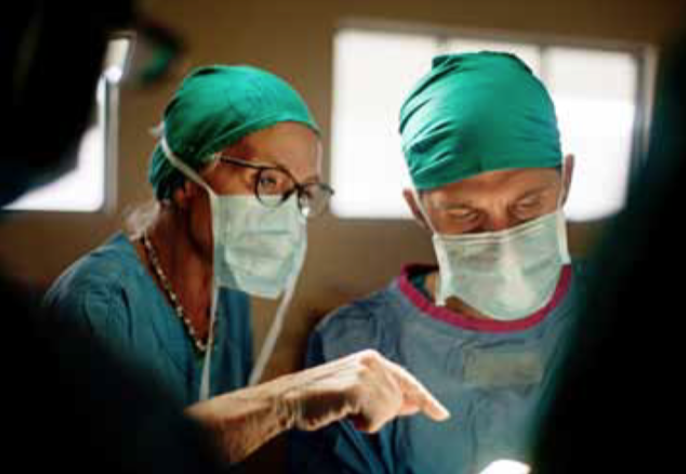When I finished my plastic surgery training in Australia I knew I wanted to travel overseas to learn from world experts about how to best care for people with microtia and facial palsy. Given the rarity of both these conditions, I knew I had to travel to places where this was all they do and I discovered that Paris, France, was a hotspot for microtia reconstruction and Boston, USA, was the number one busiest centre in the world for facial reanimation.
I am extremely fortunate to have had the opportunity to train under the two leading expert surgeons in both of these fields: Dr Françoise Firmin and Dr Tessa Hadlock.
Dr Françoise Firmin
Dr Tessa Hadlock
Though I don’t personally consider it to be unusual, it is a fact that both of the surgeon mentors I selected for my 2 years of overseas post FRACS fellowship level training are women. When I come to think of it, my current collaborations with other leading thinkers in medical innovation are quite often collaborations with women, all of whom are respected for advancing their respective fields.
There are countless women in the medical field doing amazing things, not just as surgeons and physicians, but as researchers, hospital leaders, medical administration, and allied healthcare, to name just a few. They are all dedicated to providing medical care and improving people’s lives. In addition to Françoise and Tessa, and my own wife, mother and sisters, my list of the women who have influenced me and continue to inspire me is long, and I consider myself very fortunate to have the advice, guidance and support of them all.
While I think the women in our lives deserve acknowledgement every day, International Women’s Day seems a perfect time to turn to a woman you respect and let her know that the world is a better place for her contributions.
Dr Françoise Firmin was herself a pupil of some of the most forward thinking surgeons of the 20th century. Her main mentor during her training years was Dr Paul Tessier, widely considered to be the father of modern craniofacial surgery. He is famous for having said “Pourquoi pas?” (Why not?) when asked if he would consider operating on a person with a complex array of cranial malformations. His flair for thinking outside the box rubbed off on Françoise who herself became a visionary ear reconstructive surgeon.
Dr Firmin scores my ear sculpting skills.
I had the honour of working with Françoise for an entire year in 2014 where I learnt the artform of ear reconstruction using the rib cartilage sculpting technique. She would score each of my attempts at sculpting a foam model of my wife’s ear until I was sufficiently skilled to be allowed to perform my first case. It was a privilege of a lifetime to operate with her (and her esteemed husband Francis Firmin) as my assistants for my first clinical case, and then in 2015 I collated her many thousands of ear reconstruction cases into a single body of work, co-authoring a textbook with her entitled Auricular Reconstruction.
Dr Firmin is now retired and can be found in Essaouira, a seaside village of Morocco, following her first love: sculpting. She tells me the one thing she refuses to sculpt these days, is ears!
The team at Mass Eye & Ear presenting me with a birthday cake. Dr Hadlock second from right.
Dr Tessa Hadlock devotes her career to improving the lives of patients with facial paralysis. During my time in Boston she inspired me in directions I did not expect. Tessa is the true definition of a surgeon scientist, and she taught me the value of applying rigorous data management techniques to assessing outcomes after facial reanimation. She is a meticulous record keeper and someone who understands that the only way we can advance our field is through data. She inspired me to undertake a PhD, something I had not even considered prior to my time at Harvard.
The focus was to develop an AI tool that could be used to systematically improve the way we measure outcomes, and to think about disruptive ways to leverage implanted electronics, with the aim of putting control back into the hands of our patients.
Dr Hadlock continues to hold a number of senior positions at Massachusetts Eye and Ear, and Harvard Medical School, including being awarded the prestigious honour of a fully endowed Harvard University Professorship. She has also served as the Head of the Department of Facial Plastic Surgery at the Mass Eye and Ear Infirmary for many years and I am sure has many more to come!




